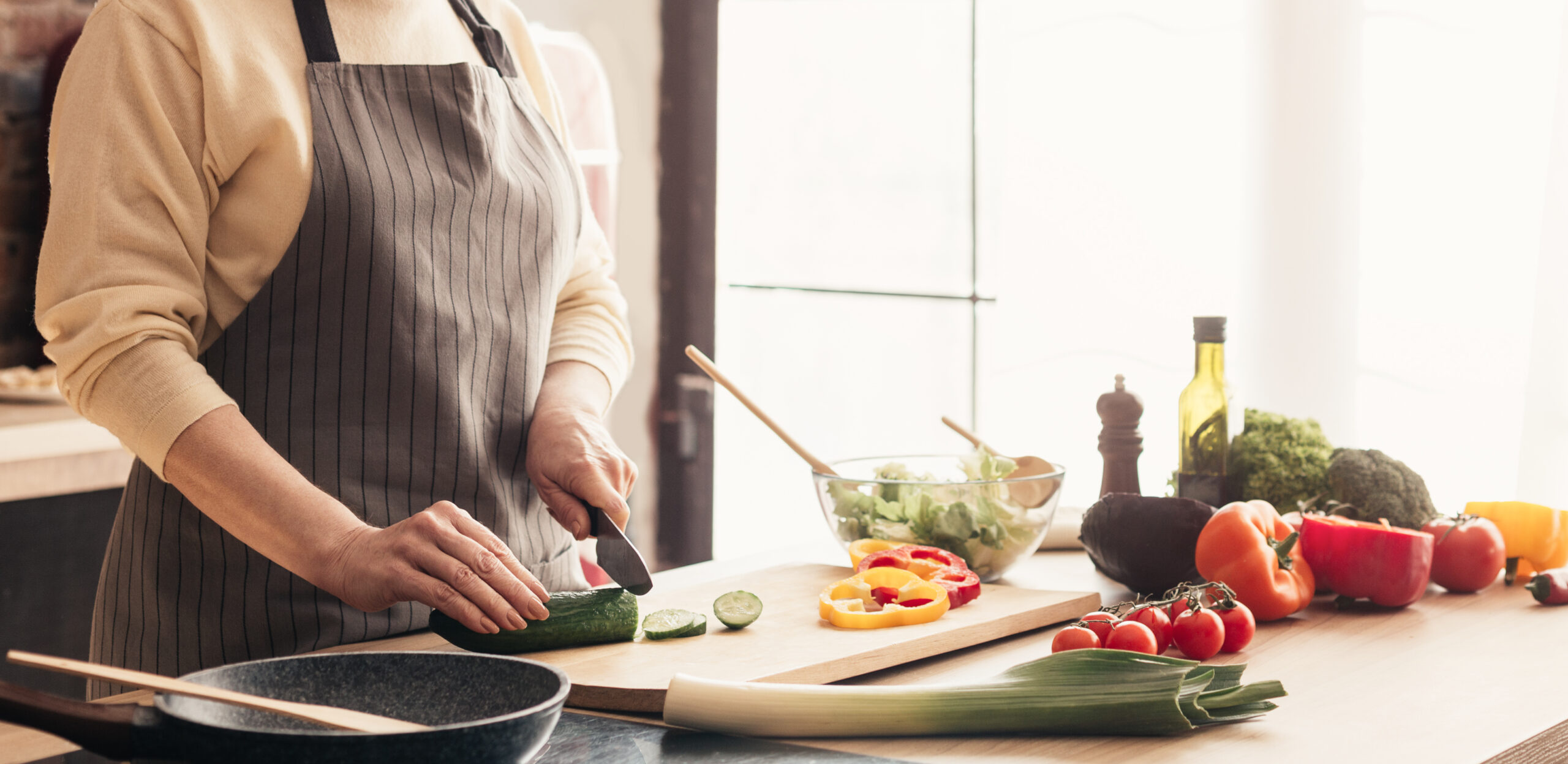By Donna Matuizek
Stirring the Pot — On Purpose
When I tell people I love cooking almost as much as I love biotech, they usually chuckle. But I’m serious. After a long day of audits, regulatory reviews, or facility walkthroughs, there’s nothing more relaxing and rewarding than tying on my apron and trying out a new recipe—or returning to an old favorite.
Cooking, to me, isn’t just a hobby. It’s a form of leadership training. And the longer I’ve worked in quality, compliance, and regulatory affairs, the more I’ve realized that many of the lessons I’ve learned in the kitchen apply just as well in the lab or boardroom.
Precision, patience, planning, teamwork—these are the ingredients that make both a great meal and a great product. Over the years, I’ve brought as much of my culinary spirit into the workplace as possible. Here’s what it’s taught me.
Recipes and Regulations: Follow the Framework
Just like in biotech, success in the kitchen often depends on understanding the rules—whether they’re FDA regulations or baking ratios. You can’t just toss in a handful of flour or wing it on sterility testing. Details matter.
In cooking, the structure of a recipe gives you a foundation to build on. In biotech, your quality systems and regulatory guidelines do the same. Neither are meant to limit creativity—they’re designed to make sure what you’re creating is consistent, safe, and high quality.
Early in my career, when I was helping establish the first FDA-cleared HIV diagnostic test, I saw how critical it was to have solid, repeatable processes. It’s no different from mastering a soufflé—it only works if you understand the science behind it and respect the steps.
Patience Is a Virtue—In the Oven and the Office
Some of the most satisfying meals I’ve made required slow roasting, long marinades, or careful reductions. In those moments, patience is not just helpful—it’s essential.
The same goes for biotech. Whether you’re preparing for an inspection, qualifying a new manufacturing site, or submitting a regulatory filing, nothing good comes from rushing the process. I’ve led teams through fast-paced, high-pressure buildouts, but even then, we always carved out time for review, validation, and refinement. You don’t serve a steak before it’s rested—and you don’t launch a product until it’s ready.
Patience is also key in leadership. Coaching junior staff, navigating shifting regulations, or managing cross-functional tensions all require a steady hand and the long view. Just like in cooking, sometimes you have to let things simmer.
Teamwork Makes the Meal
Some of my favorite memories—at work and in life—have involved food and people. Whether it’s cooking with friends in my food club, hosting dinner for my book club, or leading a quality team through a major FDA inspection, I’ve seen how collaboration transforms outcomes.
In the kitchen, you need someone chopping, someone sautéing, someone plating. No one person can do it all—at least not well. The same holds true in biotech. You need QA, RA, manufacturing, R&D, facilities, and clinical all working in sync. Success is built on communication, timing, and trust.
One thing I always try to bring to my teams is that same sense of shared purpose you get when you cook for someone else. You want every plate—and every product—to be something you’re proud to serve.
Messes Happen—Clean as You Go
Cooking can get messy, and so can quality work. Issues arise. Deviations occur. Inspections uncover surprises. The key is to manage problems as they come, not let them pile up.
In the kitchen, I clean as I go—it keeps the space organized, my mind clear, and the work more enjoyable. At work, this means tackling small compliance issues before they grow, having systems in place to catch errors early, and consistently promoting a culture of transparency and improvement.
The most successful quality teams I’ve led weren’t perfect—but they were proactive, open, and always ready to scrub down and start fresh when needed.
Passion Is the Secret Ingredient
People often ask how I’ve stayed energized over the decades in such a complex and demanding field. My answer? I care deeply about the work—and the people. The same passion that drives me to plan a dinner party menu three days in advance is the same passion that drove me to help get the first cell therapy (Provenge) approved, or to build a GMP facility during the COVID-19 pandemic.
I’ve always believed that quality is about caring—about the product, the process, and the patient. That same sense of care is what makes a great meal memorable and what makes a team resilient.
If I’ve learned anything from both my career and my cooking, it’s that putting your heart into what you do makes a difference.
Bring Everyone to the Table
Leadership, like cooking, is meant to be shared. The best meals are those eaten together, and the best teams are those built on shared values and a common goal.
Whether I’m rolling out a new SOP or rolling out pasta dough, I try to bring the same mindset: be present, be intentional, and enjoy the process. At the end of the day, we’re all just trying to make something meaningful—whether it’s a therapeutic breakthrough or a beautiful meal.
So next time you’re managing a compliance challenge or planning a dinner party, remember: patience, precision, and teamwork go a long way. And don’t forget to pour the wine.
